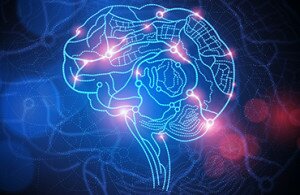
Attention
During middle childhood, as children become more efficient at processing "inputs," their attention span lengthens in duration and their ability to focus and concentrate their attention becomes more pronounced and reliable. Children gain the ability to sustain their attention towards a topic (such as a teacher's lesson plan) for longer periods of time. Further, their ability to inhibit or ignore the automatic tendency of their attention to become captured by distractions (such as birds twittering outside the window) also improves. The net effect is that children become more efficient learners and more able to tolerate and benefit from classroom instruction.
Of course, not all children experience this typical progressive improvement in their ability to pay attention. Some middle-childhood aged children do not experience these normal attention and memory improvements and instead struggle to concentrate in the increasingly demanding school, family and social environments they find themselves in. If not addressed adequately, such children's attentional difficulties can go on to result in substantial academic and social problems. A child's persistent inability to sustain focus on activities may be a sign of Attention Deficit Hyperactivity Disorder (ADHD) which is discussed in great detail in our ADHD topic center.
Memory
According to Information Processing Theory, children's memory capacity and the ability to use their memory also increases and improves during middle childhood. Children's improved memory skills allow them to store increasing amounts of information and to reliably retrieve this information later on when they need it in order to complete homework, tests, and other academic activities. In addition to increases in actual memory capacity, children also become more sophisticated in the ways that they organize the information they remember. For example, at this age children become better able to use memorization strategies (e.g., heuristics or short cuts for remembering, for instance, learning the first letter of each word in a list that you are trying to remember. The nonsense word "ROYGBIV" is an example of such a mnemonic strategy for remembering the colors in the rainbow: Red, Orange, Yellow, Green, Blue, Indigo, and Violet. As children become more capable at storing and retrieving information, they correspondingly also become more able to draw upon knowledge they've previously learned in order to draw conclusions and make educated guesses about how to solve new problems.
Middle childhood-aged children's overall knowledge continues to grow and to become better organized as a byproduct of their everyday use of their expanding cognitive skills. With the growth of their knowledge base, children's meta-cognitive abilities also mature. The term "meta-cognition" describes children's growing ability to pay attention to their own mental state and to use this information to more efficiently solve problems. A good example of children's meta-cognitive abilities is their development of cognitive self-regulation, which describes their ability to recognize and determine whether they are progressing successfully toward a goal. If they are not progressing satisfactorily, well developed cognitive self-regulation skills help children to recognize that this is the case and that they need to come up with a new approach to solving their problem if they are to make further progress.
Therapists are Standing By to Treat Your Depression, Anxiety or Other Mental Health Needs
Explore Your Options Today
Ad
As advocates of mental health and wellness, we take great pride in educating our readers on the various online therapy providers available. MentalHelp has partnered with several thought leaders in the mental health and wellness space, so we can help you make informed decisions on your wellness journey. MentalHelp may receive marketing compensation from these companies should you choose to use their services.
MentalHelp may receive marketing compensation from the above-listed companies should you choose to use their services.
Ad
